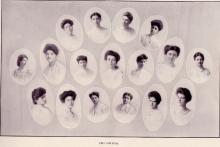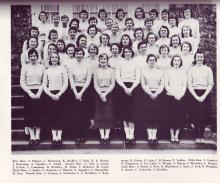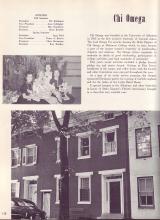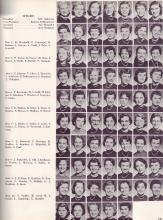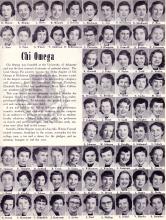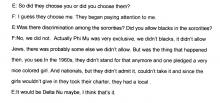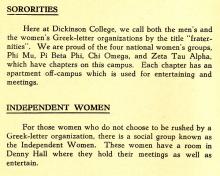Pledge Formals and the Ladies of Metzger Hall
Barbara Wishmeyer, the Dean of Women for the Academic Year 1962-1963, included photographs of her female students in her scrapbook of their pledge formal attire during the sorority rush/pledge spring season. Women had the opportunity to pledge Chi Omega, Phi Mu, Pi Beta Phi, and Zeta Tau Alpha. In these photographs from top to bottom are:
Peggy McBee
Doris Detweiler '66
Carol Frey '66
Ann Davis
Elisabeth Lane '66
Lori Shimer


